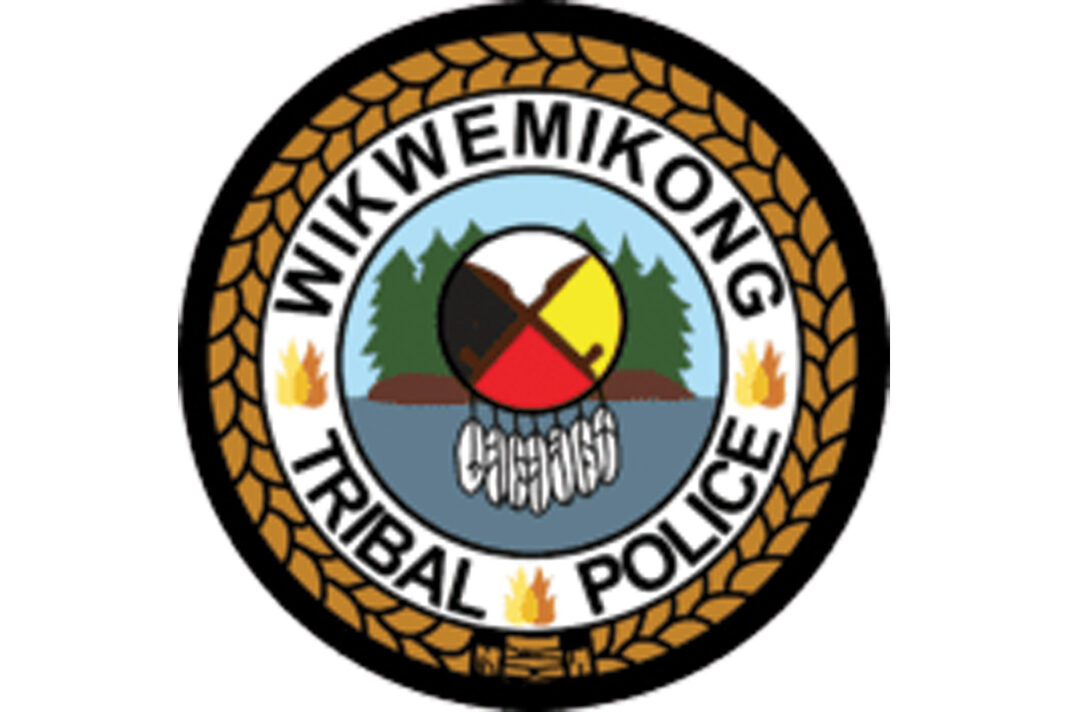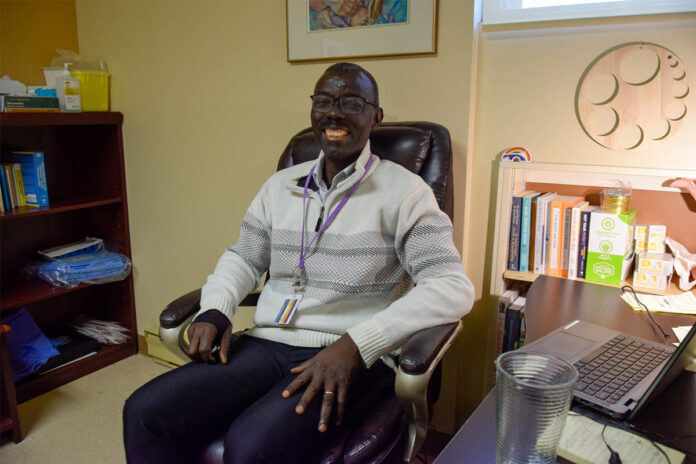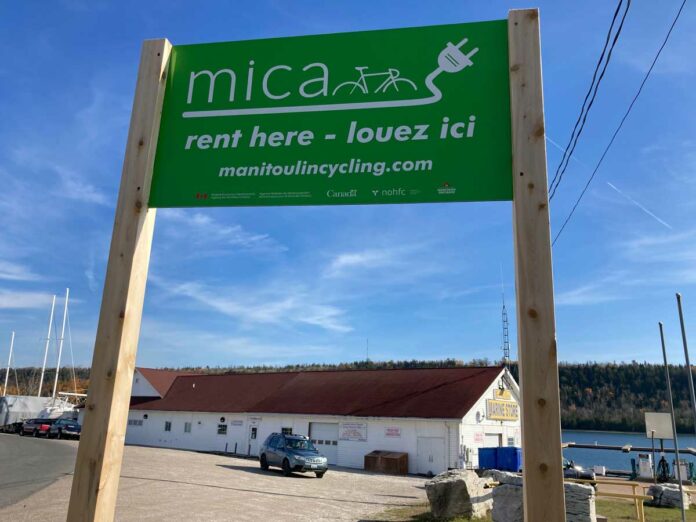Aggressive approach proved fruitful in final days of 2024
WIIKWEMKOONG — The Wiikwemkoong Unceded Territory is taking a bold stand against a growing drug crisis that has devastated communities across Northern Ontario. In the face of rising opioid-related harm, the Wikwemikong Tribal Police Service (WTPS) has launched an updated Comprehensive Drug Strategy, positioning the community as a leader in addressing one of Canada’s most pressing public health emergencies.
“This isn’t just a Wiikwemkoong issue—it’s a regional and national crisis,” said Chief of Police Ron Gignac. “Our community is committed to safeguarding our people, preserving our way of life, and becoming a model for proactive, culturally grounded approaches to the drug epidemic.”
As the year drew to a close,WTPS, alongside the Ontario Provincial Police (OPP) K-9 unit, conducted a sweeping operation to reclaim their community from the grip of illicit drugs. Over the course of December 30 and 31, 2024, these coordinated patrols coursed through the heart of Wiikwemkoong, uncovering harbingers of harm and restoring a measure of safety to the territory.
“In those two critical days, our officers and the K-9 unit meticulously searched motor vehicles and key locations,” said Chief of Police Ron Gignac. “Their vigilance and teamwork led to the significant seizure of trafficking quantities of cocaine and crack cocaine. In addition, we apprehended a driver who had fled the scene of a collision and was later found to be impaired.”
Just days prior, under the cover of darkness at 2:15 am on December 28, the WTPS once again stood sentinel. A vehicle failed to heed the call to stop for police, prompting officers to act decisively. This moment of defiance unravelled into a striking victory for the community: a recidivist offender was apprehended and 200 grams of cocaine and fentanyl—valued at $40,000—were stripped from the shadows and taken off the streets.
Chief Gignac praised his officers’ efforts: “Each instance of enforcement is a step towards a safer, stronger Wiikwemkoong. Removing these substances from our community is an act of protection for all generations.”
These actions, marked by urgency and resolve, are part of a broader, relentless effort to dismantle the networks that prey on the vulnerable and to restore the spirit of the land to its people. The fight is not over, but the frontline defenders of Wiikwemkoong have made it clear: they will not yield.
“The officers in each instance did fantastic work and I commend their steadfast commitment to enhancing community safety and enriching the lives of our citizens of all ages and walks of life” says Police Chief Gignac.
This initiative is part of the Wikwemikong Tribal Police Service’s ongoing commitment to enhancing proactive policing measures around the trafficking and use of illicit drugs and in fulfillment of the force’s drug strategy aimed at improving community safety and security.
“We are dedicated to working alongside partnering agencies such as OPP, UCCM Anishnaabe Police Service, Wikwemikong surveillance team, Crime Stoppers, and our justice system to locate, intercept, disrupt, and arrest those involved in drug trafficking on Manitoulin Island,” says Police Chief Gignac. “We urge all citizens to join us in this vital effort by remaining vigilant and reporting any suspicious activities.”
As the opioid crisis deepens across Northern Ontario, the Wiikwemkoong Unceded Territory faces an alarming surge in drug abuse and related crimes, a crisis disproportionately impacting Indigenous communities. In response, WTPS has unveiled a comprehensive drug strategy aimed at combating the epidemic with culturally grounded, community-focused initiatives.
Indigenous communities in Canada, including Wiikwemkoong, bear a disproportionate burden in the opioid epidemic due to historical injustices, systemic barriers to healthcare and social inequities. The crisis manifests in higher rates of substance abuse, overdose deaths, and drug-related crimes compared to the general population. In Wiikwemkoong, the escalating prevalence of illicit drugs poses severe challenges to community health, safety and cohesion.
Chief of Police Ron Gignac told The Expositor: “In February, as an example, we are bringing in a guest expert from British Columbia for the entire community to be at. It involves community and individual trauma healing themes, overcoming dependencies and another seminar for men on the roles, responsibilities and leadership that they need to have in a family, the community and in society. I plan to bring in subject matter experts every two months and involve the entire community insomuch as to unify the approach to drug resistance education starting at the primary (next generation) level, and focusing upon young adults and adults for recovery, support, detoxification, life skills and hope for the future.”
The Strategy: A Multi-Pillar Approach
The WTPS strategy is built on eight pillars, blending prevention, enforcement, and healing to address both the root causes and immediate impacts of the crisis:
Prevention and Education: Culturally sensitive workshops and youth-focused programs aim to empower community members to resist drug use and recognize the risks of substance abuse.
Enforcement and Compliance: Enhanced patrols, intelligence-led policing, and partnerships with regional and national agencies target drug trafficking networks. Marine operations focus on preventing illicit substances from entering the territory by water.
Treatment and Rehabilitation: Accessible, culturally relevant recovery programs integrate traditional healing practices with modern therapeutic approaches, fostering holistic recovery.
Community Engagement and Support: Collaborations with tribal elders, local leaders, and community organizations create a network of support that empowers residents to take an active role in combating the crisis.
Monitoring and Evaluation: Metrics ensure the strategy’s effectiveness, with regular updates and adaptations to respond to emerging trends.
Recruitment and Retention: The strategy prioritizes building a skilled and culturally competent police force, offering competitive salaries, mental health support, and professional development.
Organizational Structure: Regular reviews ensure the WTPS remains agile and responsive to community needs.
Justice System Collaboration: Advocacy for legislative reforms, including culturally appropriate diversion programs, aims to balance public safety with rehabilitation-focused justice.
The WTPS emphasizes collaboration and cultural respect as central to its approach. Community workshops, anonymous reporting channels, and transparent communication are integral to fostering trust and participation.
“A holistic approach is necessary and not just enforcement to succeed as we all know. Proof is in the recidivism rates we experience frequently,” said Police Chief Gignac.
The opioid crisis in Indigenous communities is tied to larger systemic issues, including intergenerational trauma, lack of access to healthcare, and socio-economic disparities. The WTPS strategy acknowledges these realities, embedding traditional knowledge and cultural practices into its initiatives to ensure relevance and impact.
As Northern Ontario grapples with rising opioid-related harm, the WTPS strategy offers a model for tackling the crisis through community empowerment, cultural alignment, and justice reform. However, the success of such efforts depends on sustained investment and collaboration with federal and provincial governments, healthcare providers and broader society.
This isn’t just a Wiikwemkoong issue—it’s a regional and national crisis.
The WTPS strategy aims to aid Indigenous communities to protect their people and preserve their way of life amidst one of the most pressing public health challenges of our time.
The WTPS urges community members to reach out with any information, saying they are dedicated to laying the groundwork for healing by protecting heritage and strengthening the community. In case of emergencies dial 911 or for non-emergencies call 705-370-3141.






